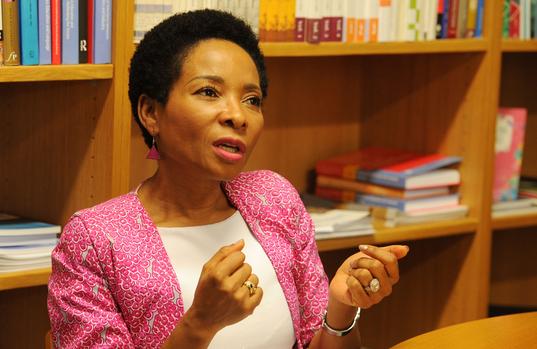Johnathan Paoli
An independent panel tasked with investigating governance failures at the University of Cape Town released its report on Wednesday, finding that former vice-chancellor Mamokgethi Phakeng exploited and encouraged racial divisions and abused executive members of staff.
The university appointed a five-member panel late last year to investigate alleged governance issues at the institution.
The panel was chaired by retired judge Lex Mpati, Judge Azhar Cachalia, Dr Patricia Hanekom and Dr Bernadette Johnson, and heard the transcribed equivalent of 3,825 pages of oral evidence from 27 witnesses, read 1,671 pages in evidence from written statements from additional witnesses, and considered a further 478 pages of documentary evidence, stretching from January 2018 to December 2022.
This follows circumstances around the departure of deputy vice-chancellor Lis Lange, together with an exodus of other senior staff members.
In addition, a number of the departing senior staff members had been forced to sign non-disclosure agreements.
“Most witnesses felt comfortable with their names being mentioned, more so after the fear of reprisal had receded with the departure of the VC and the Chairperson of Council,” the report said.
The panel found that UCT’s former deputy vice-chancellor for learning and teaching, Lis Lange, had no personal reasons to step down and that her departure was constructive dismissal.
The report went on to state that the council failed to act timeously on the issues that plagued the institution.
The report said that Phakeng “repeatedly conducted herself unprofessionally by engaging in activity that is prohibited in the UCT workplace, including using threats, intimidation, ethnic slurs, personal insults and also posting racially offensive material on social media”.
In addition, the report alleged that Phakeng’s behaviour was aided and protected by former UCT Council chair Babalwa Ngonyama’s multiple breaches of good governance and found that Ngonyama’s conduct in failing to perform her fiduciary duty to UCT was sufficiently concerning that it recommended the businesswoman should be reported to the appropriate regulatory authorities.
In addition, an apology from the current Council was issued, which recognised the truth of the panel’s conclusion that said that had the Council at the time fulfilled its governance role as required, the events that unfolded and emotional trauma to many individuals could have been avoided.
INSIDE EDUCATION






